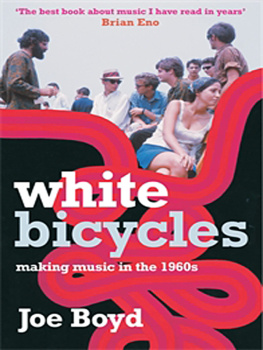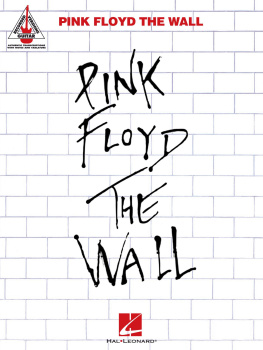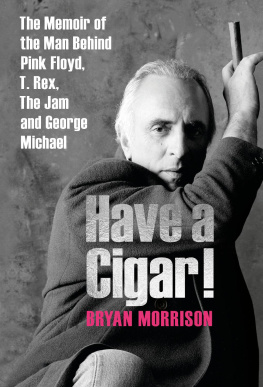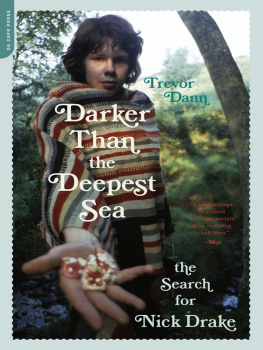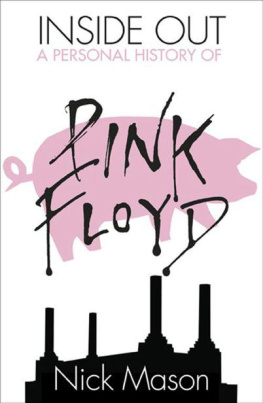Joe Boyd - White Bicycles: Making Music in the 1960s
Here you can read online Joe Boyd - White Bicycles: Making Music in the 1960s full text of the book (entire story) in english for free. Download pdf and epub, get meaning, cover and reviews about this ebook. year: 2010, publisher: Serpents Tail, genre: Non-fiction. Description of the work, (preface) as well as reviews are available. Best literature library LitArk.com created for fans of good reading and offers a wide selection of genres:
Romance novel
Science fiction
Adventure
Detective
Science
History
Home and family
Prose
Art
Politics
Computer
Non-fiction
Religion
Business
Children
Humor
Choose a favorite category and find really read worthwhile books. Enjoy immersion in the world of imagination, feel the emotions of the characters or learn something new for yourself, make an fascinating discovery.
- Book:White Bicycles: Making Music in the 1960s
- Author:
- Publisher:Serpents Tail
- Genre:
- Year:2010
- Rating:3 / 5
- Favourites:Add to favourites
- Your mark:
- 60
- 1
- 2
- 3
- 4
- 5
White Bicycles: Making Music in the 1960s: summary, description and annotation
We offer to read an annotation, description, summary or preface (depends on what the author of the book "White Bicycles: Making Music in the 1960s" wrote himself). If you haven't found the necessary information about the book — write in the comments, we will try to find it.
Joe Boyd: author's other books
Who wrote White Bicycles: Making Music in the 1960s? Find out the surname, the name of the author of the book and a list of all author's works by series.
White Bicycles: Making Music in the 1960s — read online for free the complete book (whole text) full work
Below is the text of the book, divided by pages. System saving the place of the last page read, allows you to conveniently read the book "White Bicycles: Making Music in the 1960s" online for free, without having to search again every time where you left off. Put a bookmark, and you can go to the page where you finished reading at any time.
Font size:
Interval:
Bookmark:
RECORD AND FILM PRODUCER JOE BOYD was born in Boston in 1942 and graduated from Harvard in 1964. He went on to produce Pink Floyd, Nick Drake, Fairport Convention, REM and many others. He produced the documentary Jimi Hendrix and the film Scandal. In 1980 he started Hannibal Records and ran it for 20 years.
Joe Boyd lives in London where he writes occasionally for the Guardian, Independent and opendemocracy.net. His website is located at www.joeboyd.co.uk. White Bicycles, an anthology of Joe Boyds record production in the 1960s, is available from Fledgling Records.
praise for White Bicycles
As a memoir of the enchanted 60s, White Bicycles is among the elite. It isnt just that Boyd was among the eras movers and shakers, he has a rare recall of events and a fluid, engaging style. The book bristles with evocative anecdotes exhilarating Observer Music Monthly
One of the most lucid and insightful music autobiographies Ive read Michel Faber, Guardian
Terrific This engaging and readable book is an important addition to the history of its time Hanif Kureishi, New Statesman
A rock memoir that shuns the usual 60s clichs while providing insightful character studies of Brit-folks future stars refreshing and cleverly observed Uncut
Among the musical anecdotes are thoughtful observations on the era Boyd remains a true believer, for whom it was a joy to have been alive in that permissive dawn. At 40 years distance, his prose still conveys the hues of the sunrise with startling vividness Nigel Williamson, The Times
Impossible to put down Q
Boyd is one of that select group of rock luminaries, like John Peel, or the American producer Rick Rubin, who didnt have to pick up a guitar to shape the evolution of entire genres of music. And this book is the perfect literary echo of a lifetimes subtle facilitation Boyds pages abound with astute observations and fascinating personal detail a transport of delight Independent on Sunday
A vivid eye-witness account pulses with the mad enthusiasms of its period and its author Robert Sandall, Sunday Times
Boyds account far exceeds the breadth of most rose-tinted ruminations detailed and lucid A wise, thoughtful and engrossing account, White Bicycles is one of the best 1960s essays of recent years Scotsman
Boyd writes in a dry, assured style about remarkable times, and he achieves the goal of any music book: to make the reader want to check out the music he writes about Will Hodgkinson, Guardian Guide Reading Boyds cracking account of the Sixties, you wonder if his life since hasnt been one long disappointment Its a colourful story, beautifully told You are left relieved that such a central figure wrote this exceptional memoir Mark Ellen, Observer
A fascinating book overflowing with entertaining and insightful musical anecdotes Morning Star
Compulsive quirky detail, rare sanity and razor sharp recall puts it in the same bracket as Simon Napier Bells Black Vinyl White Powder or Julian Copes Head On. A delight The List
Packed full of funny, telling anecdotes and wry, insightful observation, it takes us on a fantastic musical adventure fRoots
white
bicycles
making music in the 1960s
Joe Boyd

First published in Great Britain in 2006 by
SERPENTS TAIL
an imprint of Profile Books Ltd
3a Exmouth House
Pine Street
London EC1R 0JH
www.serpentstail.com
This eBook edition published in 2009
Copyright Joe Boyd, 2006, 2009
The moral right of the author has been asserted.
This eBook is copyright material and must not be copied, reproduced, transferred, distributed, leased, licensed or publicly performed or used in any way except as specifically permitted in writing by the publishers, as allowed under the terms and conditions under which it was purchased or as strictly permitted by applicable copyright law. Any unauthorised distribution or use of this text may be a direct infringement of the authors and publishers rights and those responsible may be liable in law accordingly.
A CIP catalogue record for this book is available from the British Library.
eISBN 978 1 84765 216 4
Contents
MANY FRIENDS HAVE GIVEN ME support, encouragement and advice. I owe a huge debt in particular to Lucy Bailey, who edited the final drafts with unerring eye and whose unsparing critiques improved it immeasurably. The books shape and scope are largely the result of advice from Melissa North and Pierre Hodgson, for which I am very grateful. After some early setbacks, Deborah Rogers belief and support gave me the energy to stick with it. A thoughtful response to the first draft from Rose Simpson made it clear what I needed to improve in the second. The musicians and colleagues without whom there would be no story to tell will, I trust, find their acknowledgements in the text that follows.
In memory of my grandmother, Mary Boxall Boyd, who taught me to listen.
Saturday sun came early one morning
In a sky so clear and blue
Saturday sun came without warningSo no one knew what to do.
Saturday sun brought people and faces
That didnt seem much in their day
But when I remembered those people and places
They were really too good in their way.
In their way
In their way
Saturday sun wont come and see me today.
Think about stories with reason and rhyme
Circling through your brain.
And think about people in their season and time
Returning again and again
And again
And again
And Saturdays sun has turned to Sundays rain.
So Sunday sat in the Saturday sun
And wept for a day gone by.
Nick Drake
THE SIXTIES BEGAN in the summer of 1956, ended in October of 1973 and peaked just before dawn on 1 July, 1967 during a set by Tomorrow at the UFO Club in London.
John Hopkins and I had launched the weekly UFO events at an Irish dance hall in Tottenham Court Road just before Christmas 1966, and they had quickly become the hub of psychedelic London. By April, our resident attraction, Pink Floyd, had outgrown us, so I was always on the lookout for new groups. I saw Tomorrow at Blaises one night and thought they were pretty good. When they made their UFO debut on 19 May it was love at first sight between them and our audience. Steve Howe, later to make his name and fortune with Yes, played guitar, while Twink, a key figure in the genesis of punk, was the drummer. I dont know what became of Junior, the bass player, but his mad-eyed, dont-give-a-fuck presence in a string vest was a key element in their appeal. Lead singer Keith West had a solo hit that summer with Excerpt From A Teenage Opera, Part 1 (Grocer Jack, Grocer Jack, please come back) and did his best to maintain a pop-star presence while around him the group was morphing into something quite different. My White Bicycle, a tribute to the free transport provided by Amsterdams revolutionary provos, was their new theme song, while Howes solos got longer and Twinks drumming ever wilder.
A month or two earlier, I would never have gone to Blaises and Tomorrow would barely have heard of UFO Everything was accelerating that spring: new drugs, clothes, music and clubs. The psychedelic underground and the pop scene were starting to overlap. UFO crowds were bigger each week, and it was getting hard to maintain the original atmosphere. It was also difficult to ignore the increased attention from the police: the longer the queues, the more customers were getting frisked and busted.
Next pageFont size:
Interval:
Bookmark:
Similar books «White Bicycles: Making Music in the 1960s»
Look at similar books to White Bicycles: Making Music in the 1960s. We have selected literature similar in name and meaning in the hope of providing readers with more options to find new, interesting, not yet read works.
Discussion, reviews of the book White Bicycles: Making Music in the 1960s and just readers' own opinions. Leave your comments, write what you think about the work, its meaning or the main characters. Specify what exactly you liked and what you didn't like, and why you think so.

